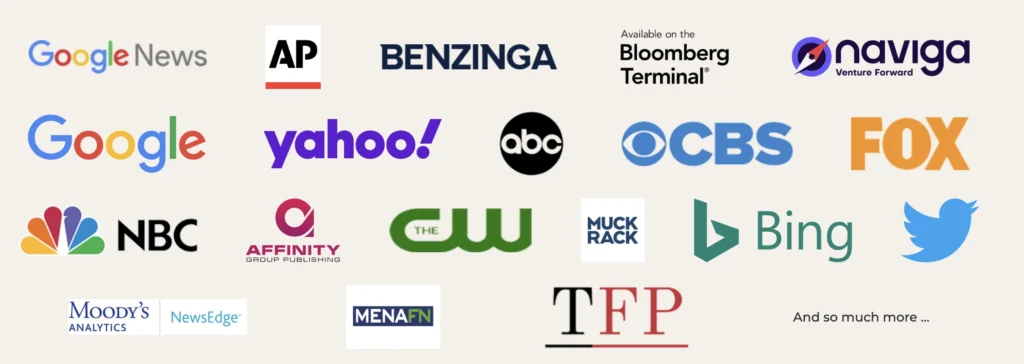Leads Transformative Ventures That Merge Business Success With Environmental Stewardship And Community Empowerment
Stephen Wentzel discusses his mission to drive sustainable change through innovative ventures, focusing on climate mitigation, community benefits, and financial sustainability.
Stephen Wentzel stands as a beacon of innovation and sustainability in the entrepreneurial landscape of Zimbabwe and beyond. His remarkable journey, marked by a profound commitment to environmental stewardship and community upliftment, has positioned him as a leading figure in the fight against climate change. As the founder of Carbon Green Investments, Stephen has spearheaded transformative initiatives aimed at combating deforestation and restoring biodiversity, demonstrating that business success and ecological responsibility can go hand in hand. His visionary approach not only addresses pressing environmental challenges but also fosters economic opportunities for local communities, showcasing the potential of sustainable development.
A multifaceted entrepreneur, Stephen’s diverse ventures—from E-charge Solutions Limited to the EBC Group—reflect his keen business acumen and strategic foresight. His ability to navigate complex markets and forge impactful partnerships has enabled him to expand his influence across Africa, particularly in the realms of finance and conservation. With a deep-rooted passion for equestrian pursuits, Stephen’s journey is a testament to the power of following one’s passions while making a significant difference in the world.
As we delve into this interview, we explore the core mission behind Stephen’s various ventures, the criteria he employs to evaluate investment opportunities, and the innovative strategies he employs to measure impact and engage stakeholders. His insights offer a compelling glimpse into the future of sustainable entrepreneurship and the vital role it plays in addressing global challenges.
Can you explain the core mission behind your various ventures, such as Fair Share Holdings, Carbon Green, EBC Investments and The Rotonde Fund, and how they differentiate themselves in the climate mitigation and sustainable investment spaces?
The core mission across all my ventures is to drive meaningful change through innovative, sustainable solutions that limit impact on the environment, benefit our investors as well as all other stakeholders. Fair Share Holdings and Carbon Green focus on addressing climate change and nature-based solutions by developing and managing projects that generate ecological net gains, as well as market relative financial returns. They are differentiated by their approaches: Carbon Green primarily develops projects from the ground up, ensuring maximum environmental impact, while Fair Share takes a broad view, investing in nature-based solutions across various sectors to promote sustainable ecological growth.
EBC Investments facilitates boutique financial solutions for individuals and small to medium sized companies within a select group. Our solutions include access via our accredited partners to, pre-paid debit cards, an online user interface with real-time reporting. EBC hold s a credit finance license, allowing the company to offer multiple forms of credit to our clients, a peer -to-peer platform to accommodate individudals with lower threshold demands. EBC provides premium financing of insurance premiums through these solutions users benefit from 24/7 access to an online interface.
The Rotonde Fund operates as an investment vehicle focused on empowering businesses within emerging markets, particularly those that align with sustainability and long-term economic development. The fund’s mission is to drive growth by supporting businesses that are scalable, utilise and provide environmental assets for economic returns.
The diversity of these ventures allows me to approach benefit sharing from multiple angles. By managing nature-based investments, spearheading biodiversity projects, and supporting emerging market entities, we ensure that the portfolio is not only profitable but also beneficial to global, environmental and social challenges. This multi-entity approach creates synergies between the sectors, offering a unique competitive advantage that allows each venture to contribute to sustainable economic returns.
What key criteria do you use to evaluate potential investment opportunities across your diverse business portfolio?
Across all my ventures I apply a personalised evaluation process, I base the potential on a few key criteria: impact, financial sustainability, and scalability. The impact of a project, particularly its contribution to reducing degradation or promoting sustainability, is essential. The environmental benefits must be clear and measurable.
Second, financial sustainability is crucial. Each project must have a solid business model that can generate reliable returns for investors with in the short to medium term. By seeking emerging market opportunities with strong capital growth potential, ensuring that return on investments contribute to both economic development and environmental sustainability sections within the group.
Scalability is a significant factor. Whether through expanding carbon offset programs or investing in new technology, I look for projects that can grow and adapt over time, especially where regulations and markets are constantly shifting.
How do you measure the impact of your investments, and can you share recent success stories or case studies from these ventures?
Measuring impact is fundamental to the success of all my ventures. The primary metric is the amount of social upliftment and nature based net gains generated through our projects. We implement a stringent third-party verification process to ensure that what we generate reflects a true benefit to the investor and the underlying beneficiaries. Recent successes are the development of largest privately funded Living Landscape biodiversity corridor, the 2nd largest REDD+ project and Chirisa REDD+ project retaining significant carbon stocks but has also restoring biodiversity, creating local revenue generating businesses. Kariba Moringa Oleifera
In addition, the fund has supported private equity buyouts in emerging market including a state-of-the-art factory in a smaller town. This business has a significant positive impact while improving local livelihoods through job creation and knowledge transfer. By combining environmental, social and economic goals, I ensure that my investments create value in multiple ways.
What challenges do you face across your diverse business portfolio, and how do you address them to ensure sustained growth?
The challenges across my ventures vary by industry but share common themes. In the green sector, one of the primary challenges is navigating the complexities of regulatory frameworks for carbon markets. Markets are still maturing, and there’s a need to stay agile and compliant while expanding operations. To address this, we actively engage with regulatory bodies and industry experts, ensuring we are well-positioned to capitalize on emerging opportunities. Biased Media reporting survives as the biggest challenge as this creates market volatility. Honesty is key to any relationship, and this is my priority, maintaining a small number of dedicated investors with whom trust is mutual, mitigates most challenges.
For the Fund, the challenge lies in investing in emerging markets where political and economic instability are significant risks. However, these regions also offer significant opportunities, especially in sectors such as renewable energy and sustainable agriculture. We mitigate risks thorough our local ground experience, strong local public private partnerships, and ensuring that our investments are both impactful and resilient.
To ensure sustained growth, I rely on diversification across my portfolio, which allows me to leverage strengths from different sectors and markets. By maintaining a balance between ecological sustainability and financial viability. My team that supports me are critical to mitigating the challenges and ensuring successes achieved thus far.
How do you engage with stakeholders, including investors and communities, to promote transparency and accountability in your projects?
Engagement and transparency are key to building trust with stakeholders across all of my ventures. I maintain open and frequent communication with investors through detailed reports on progress, performance, and outcomes. With technologically advanced monitoring systems and software, guarantee that all stakeholders are informed of the tangible impact of their investments. We actively partner with the communities we invest in, to ensure that our projects are aligned with local needs and provide direct social and economic benefits.
Our focus on transparency and ethical practices across all ventures has been a cornerstone of our success, helping us maintain strong relationships with both investors and the clients we service.
What are your long-term goals across your business portfolio, and how do you plan to adapt to future trends in sustainability, technology, and emerging markets?
The long-term goal for my ventures is to expand our impact while staying ahead of global trends in sustainability, technology, and emerging markets. The focus is on scaling our nature based projects and investing in cutting-edge technologies. The future of sustainability will be shaped by how well we can innovate and implement new models, and I intend to be at the forefront of the shift, to all-inclusive models.
As regulations evolve and new markets open, we focus on empowering businesses that align with our values of environmental stewardship and social impact. By remaining adaptable and forward-thinking, I’m confident that all the ventures can continue to thrive in an evolving landscape. Whether through technology, regulatory shifts, or market changes, my aim is to ensure that each of the businesses remains impactful, profitable, and sustainable.
EDITOR’S HIGHLIGHTS
Empowering Businesses Globally
“Being featured in Entrepreneur Prime means gaining visibility not just in print edition, but across the entire media spectrum in the US, UK, Europe and beyond”

EDITOR’S HIGHLIGHTS
The Power of Media for Entrepreneurs and Businesses
Building Success Through Visibility
Media is a powerful tool to build relationships, boost visibility, influence decisions, and create lasting impressions for success and growth.































